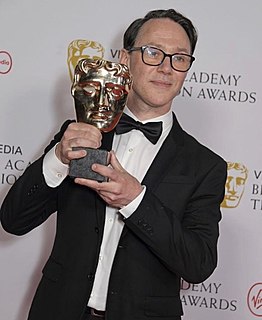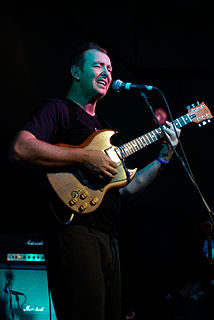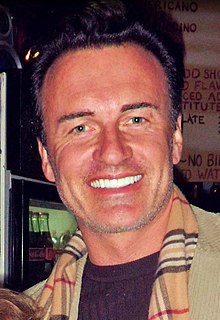A Quote by Phoebe Waller-Bridge
I change my mind every five minutes. I'm very brutal with my own process. I throw everything away very quickly, and then I have to go out and rummage through the rubbish in the middle of the night to try to find a bit I'd written a week ago.
Related Quotes
But live you get the chance every night to rework it and change it and hone it. But then you get the false, weird oddness of being able to look at it and say: "Well that's weird, because last night they laughed at that and yet they didn't tonight. So what did I do? Nothing was different." You have that strange thing of being able to tell within five minutes what an audience is like. Very quickly an audience gets a personality and you start to think: "What is it about you all; you all hate it, don't you?" Then you come out and have friends in and they say: "It was brilliant!"
I try to get my subconscious to puke out as much stuff as I can because I'm really not judging myself while making music. If I crave a frequency in the mid, I'll just drag in a sound and try to mold it into what feels right. It happens very quickly. And if I've been making a piece of music for five hours and it sucks, I'll just throw it away. There has to be an entry point to learn about myself, or an idea I've never tried, because then I can try on a new skin and see the world through a different perspective. If I have that spark, then I'll save the file.
I haven´t written on piano since It Bites. You can tell my songs that I´ve written on piano with It Bites cause they all go like "wrooash", like Old Man And The Angel and Calling All The Heroes and songs like that. It all tends to happen very quickly, I get two thirds of the song within five minutes and then spend rest of the time trying to ruin it in my head, and then I go back to where I was from the beginning.
One of the things on a very practical level as an actor or actress is that when you do a play, you do the entire story every time you do it. You have eight shows a week. You have a rehearsal process of four to five to six weeks. And then once you're in performance, everybody else goes away and you're there with your fellow actors and the audience and the material and your life becomes about that. And you go through the story from the beginning to the end every time you do it and depending on how long you do it, that's where the craft comes in.
Get yourself out. Be brave. Don't leave before you're ready, because you should know that you tried everything. So there's a conviction and a confidence when you step away from something that may or may not be conducive to your life. I think if you run away too quickly, you're going to have that "Oh God, did I try everything?" feeling. Try everything. Make it work. Do everything you can. If it's not working, then know when the signal is and move on. Change. Try something different.
I think having pointers and having guidance from mentors is very important, but it never actually embodies what you go through. And if something doesn't feel good, why do you repeat it? If you feel good bemoaning an audition for a week, go for it. But if you feel better bemoaning an audition that didn't go very well for 30 minutes because you believe in the craft and the process, then I suggest you do that. And that's what I suggest to myself. The alternative is way too painful and destructive.
Would a minute have mattered? No, probably not, although his young son appeared to have a very accurate internal clock. Possibly even 2 minutes would be okay. Three minutes, even. You could go to five minutes, perhaps. But that was just it. If you could go for five minutes, then you'd go to ten, then half an hour, a couple of hours...and not see your son all evening. So that was that. Six o'clock, prompt. Every day. Read to young Sam. No excuses. He'd promised himself that. No excuses. No excuses at all. Once you had a good excuse, you opened the door to bad excuses.
I go on the bus, I walk. A friend left his car recently at my house and I took it out one day just for 15 minutes and it was terrible. You know why? I felt like I was back in LA again. Four or five years ago, when I had a car and I had been out of the city I wouldn't feel I was back until I got in the car, you know. But now I feel off the grid. I feel that I am not part of the culture. And because I don't have a car I don't really go anywhere to buy things. In fact, I have been in a slow process of selling and giving away everything I own.
Songwriting is about getting the demon out of me. It's like being possessed. You try to go to sleep, but the song won't let you. So you have to get up and make it into something, and then you're allowed to sleep. It's always in the middle of the night, or you're half-awake or tired, when your critical faculties are switched off. So letting go is what the whole game is. Every time you try to put your finger on it, it slips away. You turn on the lights and the cockroaches run away. You can never grasp them...
I try to do two things: locate my fastball and change speeds. That's it. I try to keep as simple as possible. I just throw my fastball (to) both sides of the plate and change speed every now and then. There is no special food or anything like that, I just try to make quality pitches and try to be prepared each time I go out there.


































